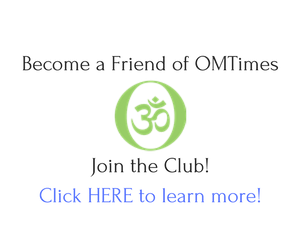5 Things to Know About Changing Bad Habits to Good Ones

We all have bad habits we want to get rid of.
Changing Bad Habits to Good Ones
By Guy Joseph Ale DBA 
Due to the marketplace forces of diverse commercial interests, shifting health insurance practices, technological advances in diagnostic equipment, and a general movement towards specialization, today’s medical profession knows considerably more about the causes of physical disease than about the causes of physical health.
Modern healthcare approach is largely symptom-focused and reactive, rather than prevention-focused and proactive. Physicians seldom discuss with their patients the basic components of a healthy and balanced life, such as nutrition, exercise, and lifestyle modification, and instead focus primarily on diagnosis and treatment of disease. This stems from the fact that most clinicians are not trained to help patients incorporate relaxation, stress management, or mind-body practices into their daily lives, practices which naturally enhance the body’s innate recuperative powers.
This article’s aim is not to discount the necessary role that medical practices play over the entire span of a person’s life, but rather to amplify the primary role that each individual plays in their own wellness. Since our body is a combined product of our genetic makeup, our thought processes, and our behavior patterns, the person most responsible for our overall wellbeing is ourselves.
When we decide to replace in our lives bad habits with better ones, it is helpful to acknowledge a few basic principles:
Change Bad Habits #1 – The greatest hurdle that most individuals face when they come to the nitty-gritty of this challenge is to apply what their mind has understood to be correct and beneficial into specific choices in their everyday life. This is the heart of the mind-body connection, and the crucial step that needs to happen to assimilate what we’ve learned into our daily routines
Change Bad Habits #2 – As a general rule, one cannot simply eliminate a bad habit and leave a vacuum where it had been. This space needs to immediately be filled with a good healthy activity instead
Change Bad Habits #3 – The future is not the past – we don’t have to carry forward bad habits only because we have done them before. The latest insights of neuroplasticity research show that the human brain is naturally programmed to evolve, transform, and configure new connections between the billions of nerve cells it contains throughout our entire lifespan. This means that we can keep the mind active and sharp well into the higher decades of our life by keeping ourselves stimulated with mental, physical, and spiritual pursuits
Change Bad Habits #4 – “Letting go” rather than “getting rid” of bad habits – realizing both in body and in mind that there are certain substances that you simply do not need to survive. Your body requires food and water to exist, and it needs oxygen to breathe, but substances such as nicotine and other drugs are simply not essential for your survival
Change Bad Habits #5 – The fundamental factor in a person being able to change their habits is for them to change their perception of themselves: their beliefs about what is vital for their existence, what they are capable of doing, and their overall awareness of their mind, body, and spirit.
The most recent discoveries of superstring theory indicate that at the essence of all existence there are units of fluctuating information, vibrating strings of energy and intelligence, which collapse into particular reality depending on the observer and the anticipated outcome that observer is projecting onto them. This inherent pliability of the universe shows that there are no real facts in life, only perceptions. Nothing in the world exists as hard and absolute truths. We create our worlds by what we think about what we see: we explain to ourselves in our minds what we are observing, and through this figuring-out process we arrive at certain conclusions about the world around us and our place in it.
Our belief systems about the world and about ourselves form the boundaries of what we think we are capable of doing and what we cannot do. This process begins in our mind, and this very fact is the master key to unlocking our full potential. Because our world originates in our mind, we shape our existence by the type of thoughts that we allow to dominate our consciousness. By addressing the higher qualities in us, we position ourselves for success by realizing the unique powers, skills, talents, and abilities we’ve been given. By deliberately making the best choices that our minds and hearts can conceive, we set ourselves for the most fulfilled and meaningful existence available to us in this given body at this given time.
The best part of growing up is coming to know yourself: you realize you no longer need to repeat past mistakes.
You will also enjoy 7 Negative Habits We Can Discard
About the Author
Guy Joseph Ale is President of Lifespan Seminar and Vice President of Asia Pacific Association of Psychology. He teaches and conducts workshops in the U.S., Europe, and Asia. This excerpt is from Guy’s upcoming book, Best Version of Yourself at Every Age: Tapping the Wisdom and Wellness of Your Body.
OMTimes Magazine is one of the leading on-line content providers of positivity, wellness and personal empowerment. OMTimes Magazine - Co-Creating a More Conscious Reality

